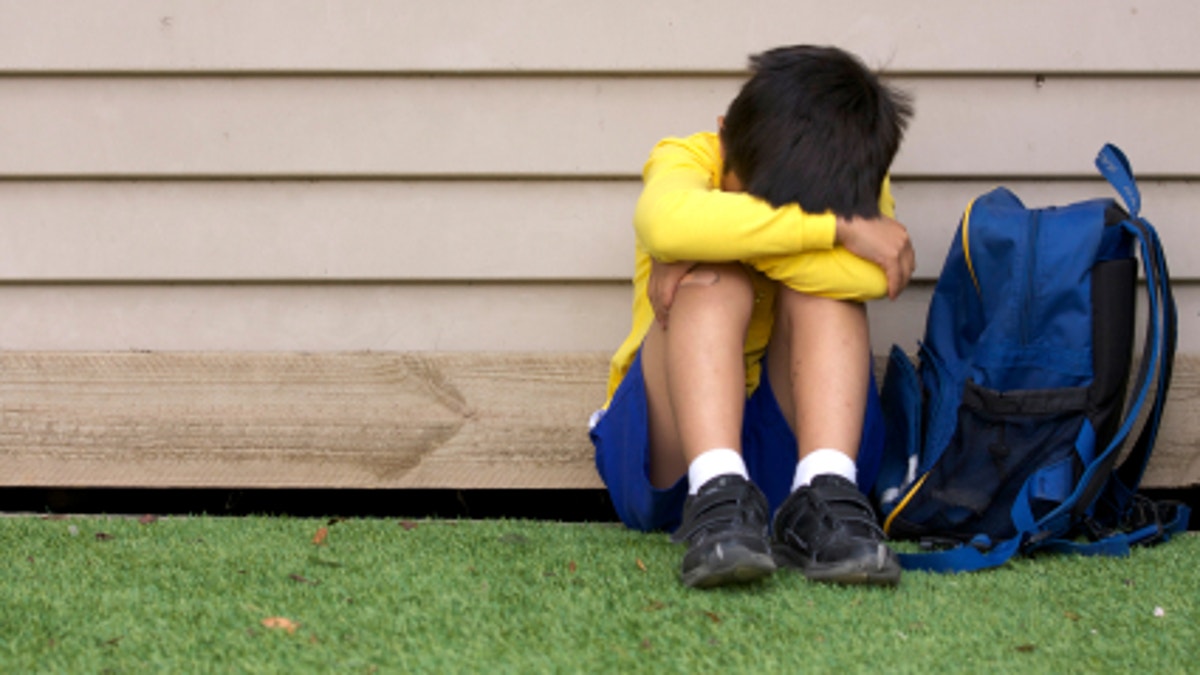
Every parent knows that bullying is a bigger problem than ever, with 41 percent of school staff reporting that they see it happening once a week or more frequently, according to a recent study by the National Education Association. What’s even more shocking is that experts are starting to see bullying as early as kindergarten when kids make fun of other children or form cliques.
Even when your children are just toddlers, there are ways you can prepare them now so they don't become bullies - or victims - later. Here are seven of them.
Don’t call it bullying.
Rest assured that when your tot takes a toy from or pushes another child on the playground, he or she is not a bully. “Toddlers really don’t have the cognitive ability to be intentionally cruel to others,” according to Diane Lang, a psychotherapist, author and positive living expert who says toddlers act on their impulses, and this behavior is normal.
Be a role model.
“Children learn through imitation, observation, and role modeling,” said Lang, explaining that when a child is a bully, usually the parent or someone in his life is too. Plus, the child doesn’t even know his or her behavior is unacceptable if there aren’t any consequences. So think about what you say to your kids, your spouse and other people. And when your toddler’s behavior is inappropriate, explain why it’s wrong and how it can hurt others.
Learn through media.
Reading age-appropriate books about bullying on a regular basis together and asking open ended questions like, “Why do you think Sam was hurting Jessica?” is a great way to start the bullying conversation early. Shows like Sesame Street and Dora the Explorer are also great ways for kids to learn about diversity and that differences are OK.
Volunteer together.
Sure, tots typically can’t sit still for a minute, but if you volunteer and get them involved in simple ways, you’ll be teaching them that people are different. Your toddler can help out with Meals on Wheels programs held in community centers or volunteer for community projects that help others. “You as the parent are teaching them respect for others and respect for themselves,” Lang said.
Teach social skills.
The opposite of being a bully is practicing cooperation, according to Maureen Healy, a child development expert and author of Growing Happy Kids: How to Foster Inner Confidence, Success and Happiness. It’s normal for toddlers to think the world revolves around them, but teaching them how to share and how to be kind to others is a great way for them to learn that other children’s feelings are important too. Preschool, play dates, and the playground are all great ways for toddlers to learn social skills.
Let them figure it out.
Many times the reason children turn into a bullies is because they don’t know how to express their feelings, and their parents don’t allow them to problem solve on their own. So by teaching your toddler that anger, frustration, fear and sadness are all normal emotions as long as they’re not taken out on someone else, and by not intervening every time he or she can’t reach a toy, your child will become more independent and less likely to bully down the road.
Teach Assertiveness.
Children who become victims tend to lack confidence and be more submissive, which is why it’s important to teach your child to be assertive, not aggressive. “When you’re teaching kids to stand up for themselves, teach them to firmly say no, be assertive but then to walk away,” according to Lang, who says kids should make eye contact, stand straight and use a calm voice. So if your toddler gets pushed on the playground by another child, he or she can say, “I don’t like what you did, don’t do it again.” Your child should also know that it’s OK and not tattling to tell a parent or teacher about another child’s behavior.
